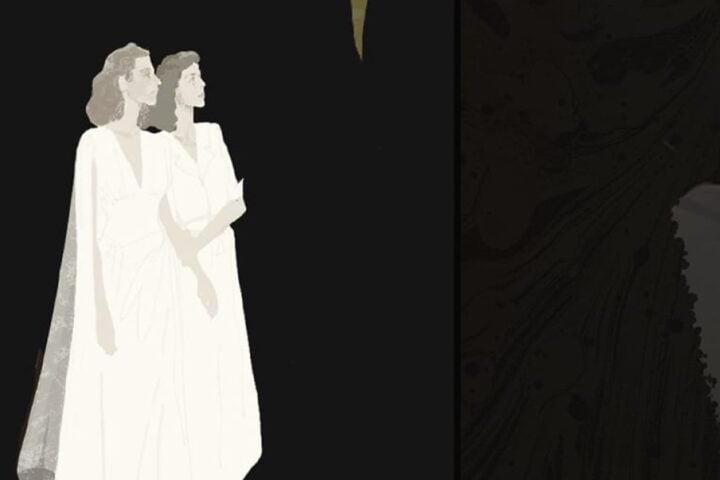After stirring much controversy with his screenplay for Larry Clark’s Kids, Harmony Korine doubled down on his unsparing view of down-and-out youth with his 1997 feature directorial debut, Gummo. Set in Xenia, Ohio, but shot in the derelict outskirts of Korine’s childhood hometown of Nashville, the film depicts the corners of America that go neglected to the point of ruin. Even the setting of Xenia is telling: Gummo takes place in the present, but the opening narration by Solomon (Jacob Reynolds) focuses on the massive 1974 tornado that devastated the town, and one gets the sense from images of dilapidated buildings and masses of junk littering yards and streets that the area never recovered.
Deliberately eschewing a linear narrative that might have brought a larger thematic structure to the film, Korine instead arranges Gummo as a series of vignettes that allows for perspective to switch between characters like a baton. A general sense of hopelessness pervades these character snapshots. Solomon and Tummler (Nick Sutton) roam around town killing stray cats for extra pocket change, and they eventually come into conflict with Jarrod (Daniel Martin), who’s also killing cats and defends his own poaching as a means of supporting his bedridden grandmother. Later, Solomon discovers a hidden trove of Jarrod’s self-portrait Polaroids wearing drag, looking far happier than he ever does in person discussing his miserable life.
The violence that these kids visit so dispassionately on small animals is an extension of the general willingness of people in this town to fight over the slightest provocation, and some slice-of-life interstitial moments capture fleeting glimpses of the rage in locals that manifests as racism, misogyny, or general misanthropy. The soundtrack is filled with needle drops from some of the most extreme subgenres of the time, most especially Norwegian black metal. The film’s girls and young women navigate an additional layer of constant threat, be it the passive sexism of boys their age or the outright predations of an elderly child molester groping at teen girls and assuring them that they’ll be violated in a one-horse town like Xenia sooner or later.
Harrowing as these glimpses of economic and psychological ruin are, Gummo doesn’t merely wallow in its characters’ dire straits. For one, moments between Solomon and his single mother (Linda Manz) reveal, despite the ways that each can speak past the other, their underlying affection for one another and mutual understanding. The film’s most memorably surreal scene, of Solomon’s mother serving him a plate of spaghetti and a glass of milk as he soaks in a bathtub thick with mildew, ultimately plays out as a tender exchange between Manz and Reynolds.
Throughout, even moments of violence can be undercut by a sudden show of humanity, however warped it may be. When Solomon and Tummler ransack Jarrod’s home as revenge for cutting into their cat-culling racket, the former cannot bear the sight of Jarrod’s catatonic grandmother and, in a morbid display of mercy, unhooks her life support to release her.
By exposing and embracing the contradictions of nihilism and connection, Gummo sidesteps pity and cultural rubbernecking for a compelling ambiguity worthy of the works by John Cassavetes and Flannery O’Connor. Korine has spent his subsequent career dancing right up, and occasionally tripping over, the line demarcating this warts-and-all humanism and mere provocation, but he arguably never achieved this level of emotional delicacy ever again.
Image/Sound
Cinematographer Jean-Yves Escoffier shot Gummo on various formats, including 16mm, 35mm, and video. The images captured on Super 8 and analog tape accurately evince the fuzzy definition and color bleed that the formats are prone to, while the 16mm and 35mm images boast sharper contrast and by far the clearest detail that the film has ever seen on home video. For the first time, you can glean the topographical peaks and valleys of mold around Solomon’s bathtub, or the faint stains and faded lines on hand-me-down clothing.
Similar to the video, the soundtrack’s only flaws are endemic to the cheaper, consumer-grade equipment on which certain moments were recorded. The muffled audio of the VHS-shot scenes aside, though, this is a clear, well-balanced track that nicely blends the diegetic and non-diegetic music cues into the rear channels with direct-sound dialogue and ambient noise.
Extras
The Criterion Collection’s disc comes with a new interview with Harmony Korine in which he discusses his upbringing and the influences that shaped Gummo. We also get a 1997 conversation in which Korine engages in curious, mutually admiring dialogue with Werner Herzog, as well as a 2000 interview of Korine by indie producer John Pierson for his Split Screen series. In both of these latter talks, Korine slips in and out of a facade of arty provocation to reveal moments of vulnerable earnestness as he reflects on his filmmaking.
Sadly, the disc doesn’t come with “The Diary of Anne Frank Pt. II,” the video collage that Korine assembled from leftover footage, of which he purportedly has hours and hours. Given the non-narrative, kaleidoscopic nature of the final film, any glimpse of this material that he gathered through improvisation and experimentation would have been welcome. Rounding out the package is a booklet containing an appreciation by filmmaker Hype Williams and an essay by critic Carlos Aguilar that discusses the film’s radical and nonjudgmental empathy.
Overall
Harmony Korine’s feature debut looks as good as it likely ever will on Criterion’s 4K transfer.
Since 2001, we've brought you uncompromising, candid takes on the world of film, music, television, video games, theater, and more. Independently owned and operated publications like Slant have been hit hard in recent years, but we’re committed to keeping our content free and accessible—meaning no paywalls or fees.
If you like what we do, please consider subscribing to our Patreon or making a donation.




